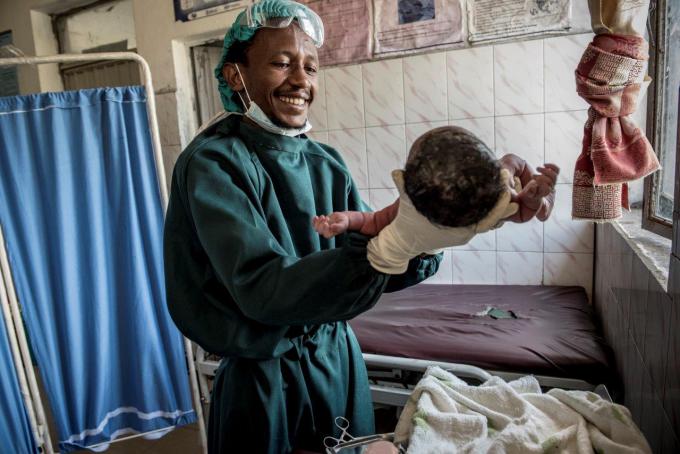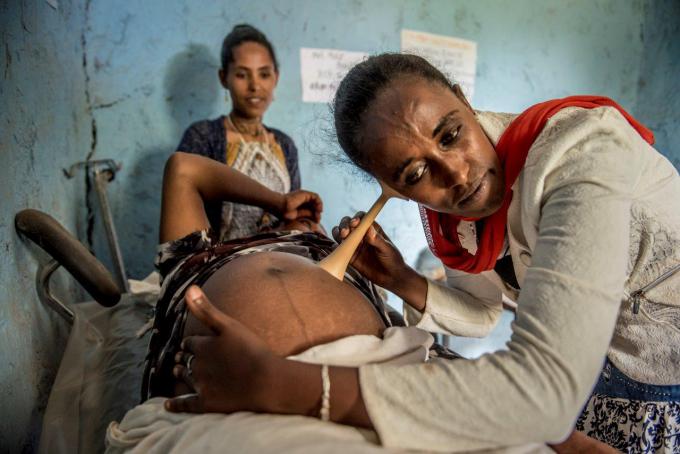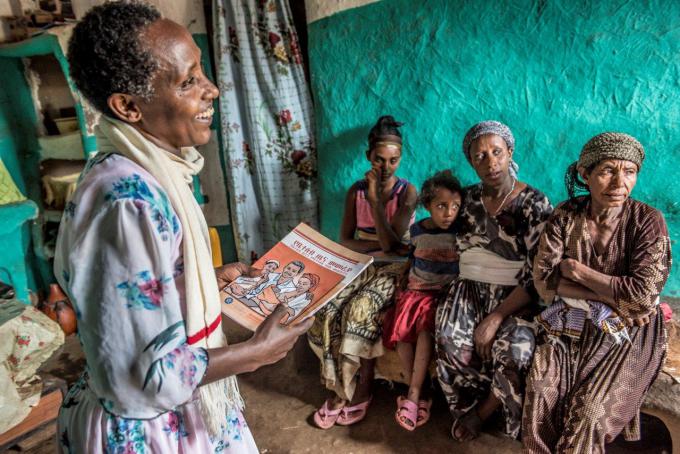MCSP CBNC-NEGA organizes regional dissemination and project closeout workshop

Maternal and Child Survival Program (MCSP) Community Based Newborn Care (CBNC)- Newborn in Ethiopia Gaining Attention (NEGA) has successfully organized regional dissemination and closeout workshop in Tigray, Amhara, Oromia, and SNNP regions.
In the workshops, regional project managers highlighted key achievements and lessons learnt during the years of program implementations. Accordingly, health extension workers that Save the Children has trained to promote demand for health services were said to have made significant contributions to improve maternal and child health practices and they can work even better to change health seeking behavior of the communities they serve, thereby sustaining the progress made through the program now closing out. Similarly, religious leaders and community leaders are said to have a great potential to reinforce the changes in community’ health care seeking behavior. It was also emphasized that a multi sectoral approach to maternal and child health interventions helps to increase the accountability of all stakeholders to improve the health care services and demand for these services.

According to Asayehegn Tekeste, Chief of Party of MCSP NEGA-CBNC Program, the program has registered a measure of success because of the collaborative efforts of communities, government and different stakeholders. Asayehegn noted that the best practices of the program need to be replicated to further improve demand for and access to maternal and newborn health services.
On the occasion, Heads of Regional Health Bureas have expressed commitment to replicate successful practices from the MCSP-NEGA to Kebeles uncovered by the program and continue towards increasing the quality and uptake of health care services, strengthening the referral linkage between health care facilities and ensuring community ownership of maternal and newborn health initiatives in the regions.
Representatives of Health Extension Workers also shared their experiences while promoting maternal and newborn health practices among communities and discussed key achievements including those related to identifying and treating very severe newborn diseases. Similarly, representatives of religious leaders and some members of Save the Children strengthened Kebele Command Posts appreciated the program activities in their respective localities and the change brought about in their communities as a result.

MCSP NEGA is a USAID’s flagship maternal and health program with the ultimate goal of ending preventable child and maternal deaths. It contributes to the reduction of neonatal morbidity and mortality in four regions of Ethiopia, namely Amhara, Oromia, SNNP and Tigray Regional States, through capacity building to provide high-impact services both at the community and Primary Health Care Unit (PHCU) levels in the four regions. MCSP NEGA is one of four partners working to support the Federal Ministry of Health’s (FMOH’s) efforts to scale up the CBNC package in the target geographies through demand creation; universal provision of high-quality, high-impact services; and strengthened support systems. MCSP NEGA focuses its efforts in 12 zones and two Special woredas (a total of 136 woredas) in the four regions. Over the project period so far, MCSP NEGA supported the introduction of CBNC in a total of 728 health centers and 3,605 health posts found in the 136 woredas, resulting in universal coverage of all the PHCUs in the project target zones.
 Ethiopia
Ethiopia